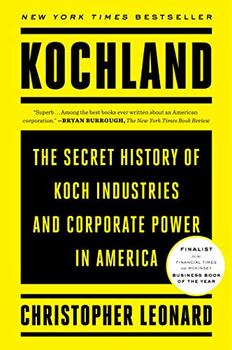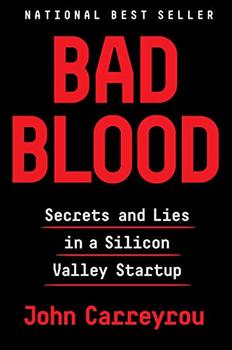Summary | Excerpt | Reviews | Beyond the book | Read-Alikes | Genres & Themes | Author Bio

An Insurance Company Insider Speaks Out on How Corporate PR Is Killing Health Care and Deceiving Americans
by Wendell PotterWendell Potter's story not only initiated a strong, emotional response, but his words also reignited my passion for fact checking. I wasn't surprised to connect easily with the primary topic; as someone who does not receive health insurance through my employer, I know first-hand some of the challenges and flaws of American health care. Less expected were the memories the book kindled of my undergraduate days. I remember reading in my introductory public relations textbook about the importance of ethical behavior. And I remember wondering, even then, whether it was realistic to believe that most PR professionals would take such care and whether the Public Relations Society of America's standards were, in practice, more like suggestions. Reading Wendell Potter's story brought up many of these same questions.
Potter's career path is evidence of his talent. He was the first in his family to earn a college degree. He landed a full time newspaper job following graduation and was promoted twice within the next few years. He transitioned from this early journalism work to a short-lived press secretary position with then-Democratic candidate Jake Butcher. His connection with Butcher led to more public relations work, promoting a World's Fair in Knoxville, Tennessee, and working for a bank Butcher owned until it, and Butcher's other banks, were shut down due to fraud, and Potter lost his job. After jointly running a PR firm for a time, the author took his first PR job in the healthcare field with a nonprofit health system. Though he recalls colleagues at his nonprofit employer warning him against it, Potter then joined the for-profit company Humana a couple of years later. It wasn't long before CIGNA, one of the largest U.S. private health insurance companies, called offering him an even better job.
It was this final position that stirred Potter to make a drastic change, and his experiences while working at CIGNA form the bulk of his case against corporate health care. He explains in plain terms the strategies used by the company to spin information and public perception in whatever direction leads to higher profits. He cites three specific incidents as the cause of his decision to abruptly leave a lucrative and powerful career. The first involved the Michael Moore film Sicko, which Potter watched "undercover" with another CIGNA employee, despite the insurers' sophisticated attempts to minimize the movie's effect. The second found Potter witnessing a free health clinic in a rural Virginia county where he was overwhelmed by hundreds of people lining up to receive medical treatment in stalls built for livestock. The third and final event was the death of seventeen-year-old Nataline Sarkisyan. Nataline was insured under a CIGNA plan when she died of cancer having been refused a liver transplant on the grounds that the operation was experimental and unproven - despite the head of the transplant unit writing to protest that the treatment was neither. CIGNA did eventually reverse their decision, but too late for Nataline who died a few hours later.
The close of Deadly Spin again resonated powerfully with me personally, this time with the values that led me to become a librarian. Potter's closing chapters expand from the detail he shares about one American industry to a much broader issue – the shrinking of traditional journalism and the substitution of spin and opinion for objective information sources. Potter discusses a key element of what librarians often call information literacy. When we can no longer identify the source of critical, factual information – like our news or the data used to create legislation – how can we trust its accuracy? The lessons from Potter's book stretch beyond the one contentious issue of American health care. The phrase "required reading" may be overused, but I think it applies doubly here. This book should be on those lists in schools and colleges that first gave rise to the term; and readers, like me, who are past the stage of formal education should likewise add this title to their self-made list of essentials.
![]() This review was originally published in The BookBrowse Review in January 2011, and has been updated for the
October 2011 edition.
Click here to go to this issue.
This review was originally published in The BookBrowse Review in January 2011, and has been updated for the
October 2011 edition.
Click here to go to this issue.

If you liked Deadly Spin, try these:

by Christopher Leonard
Published 2020
Just as Steve Coll told the story of globalization through ExxonMobil and Andrew Ross Sorkin told the story of Wall Street excess through Too Big to Fail, Christopher Leonard's Kochland uses the extraordinary account of how one of the biggest private companies in the world grew to be that big to tell the story of modern corporate America.

by John Carreyrou
Published 2020
The full inside story of the breathtaking rise and shocking collapse of Theranos, the multibillion-dollar biotech startup, by the prize-winning journalist who first broke the story and pursued it to the end, despite pressure from its charismatic CEO and threats by her lawyers.
Your guide toexceptional books
BookBrowse seeks out and recommends the best in contemporary fiction and nonfiction—books that not only engage and entertain but also deepen our understanding of ourselves and the world around us.